
Introduction

In today’s world, where environmental concerns are mounting and the effects of climate change are becoming increasingly apparent, embracing a sustainable lifestyle is no longer a choice but a necessity. Our planet is facing unprecedented challenges, from rising temperatures and sea levels to dwindling natural resources and biodiversity loss. It’s time for us to take a stand and make conscious choices that protect the delicate balance of our ecosystem.
Sustainable living, often referred to as eco-friendly or green living, is a holistic approach that aims to reduce our environmental impact and promote the responsible use of resources. It’s a mindset that encourages us to make decisions that not only benefit ourselves but also the planet we call home. By adopting sustainable practices, we can contribute to a greener tomorrow, where future generations can thrive in a healthy and vibrant environment.
The growing awareness of environmental issues has sparked a global movement towards sustainability, with individuals, communities, and organizations recognizing the urgency of taking action. From the devastating effects of plastic pollution in our oceans to the alarming rate of deforestation and habitat destruction, the signs are clear – we must change our ways to preserve the Earth’s precious resources.
The Environmental Benefits of Eco-Friendly Living

Embracing an eco-friendly lifestyle is one of the most powerful ways to reduce our impact on the environment and combat the pressing issue of climate change. By adopting sustainable habits, we can significantly lower our carbon footprint and contribute to preserving the planet’s precious resources for future generations.
One of the primary environmental benefits of eco-friendly living is the reduction of pollution. Many of our daily activities, such as driving, using electricity, and consuming disposable products, generate harmful emissions and waste that pollute the air, water, and soil. By making conscious choices to reduce energy consumption, switch to renewable sources, and minimize waste, we can drastically cut down on the pollution we generate.
Furthermore, eco-friendly habits play a crucial role in conserving natural resources. Our planet’s finite resources, including water, fossil fuels, and raw materials, are being depleted at an alarming rate. By adopting sustainable practices like water conservation, energy efficiency, and responsible consumption, we can significantly reduce the strain on these valuable resources and ensure their availability for years to come.
Finally, eco-friendly living is a vital step in combating climate change, one of the greatest environmental challenges of our time. The burning of fossil fuels, deforestation, and other human activities have led to an increase in greenhouse gas emissions, causing global temperatures to rise and triggering severe consequences such as melting glaciers, rising sea levels, and extreme weather events. By transitioning to a more sustainable lifestyle, we can collectively reduce our carbon footprint and mitigate the devastating effects of climate change.
The Health Benefits of Sustainable Living
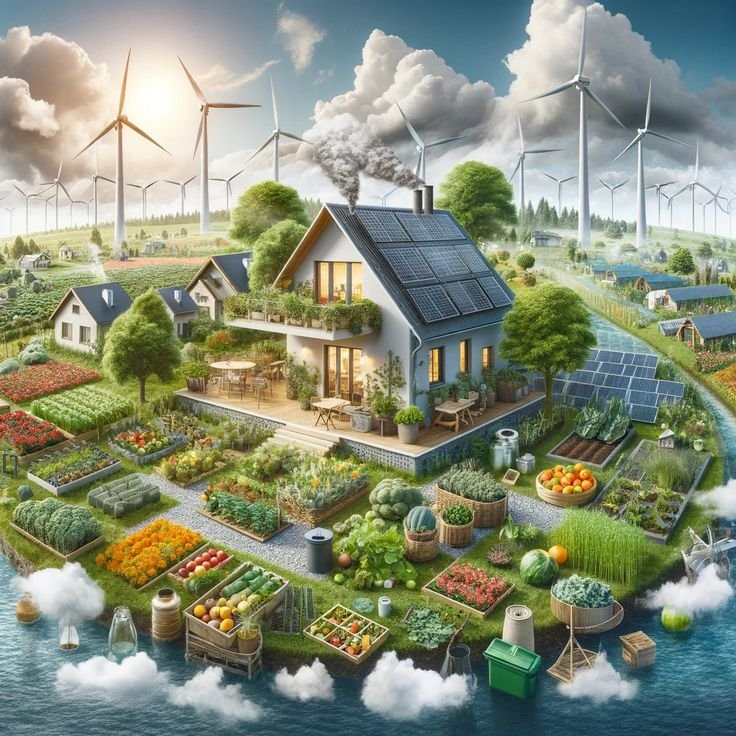
Living an eco-friendly lifestyle not only benefits the environment but also offers numerous advantages for your personal well-being. By embracing sustainable practices, you can significantly improve the quality of the air you breathe, enhance your mental health, and cultivate healthier habits.
One of the most tangible health benefits of sustainable living is cleaner air. Reducing your reliance on fossil fuels and adopting greener transportation options, such as walking, cycling, or using public transit, can substantially decrease air pollution levels in your community. This, in turn, lowers the risk of respiratory problems and other health issues associated with poor air quality.
Moreover, sustainable living often encourages a closer connection with nature, which has been proven to have a positive impact on mental health. Spending time outdoors, engaging in activities like gardening or hiking, and surrounding yourself with greenery can alleviate stress, anxiety, and depression. This connection to the natural world fosters a sense of tranquility and mindfulness, promoting overall emotional well-being.
Embracing eco-friendly eating habits is another crucial aspect of sustainable living that contributes to better health. By choosing organic, locally-sourced produce and reducing your consumption of processed foods, you can significantly reduce your exposure to harmful pesticides, preservatives, and additives. Additionally, a plant-based diet rich in fruits, vegetables, and whole grains can provide essential nutrients, fiber, and antioxidants, supporting a strong immune system and lowering the risk of chronic diseases.
Furthermore, sustainable living often involves reducing your exposure to toxic substances found in household products, personal care items, and building materials. By opting for eco-friendly alternatives, such as natural cleaning products and organic cosmetics, you can minimize your contact with harmful chemicals that can negatively impact your health and well-being.
Economic Benefits of Eco-Friendly Living

Embracing a sustainable lifestyle not only benefits the environment but also offers significant economic advantages. By making conscious choices and adopting eco-friendly habits, you can save money while contributing to a greener tomorrow.
One of the most notable economic benefits of eco-friendly living is the potential for cost savings through energy-efficient appliances. Replacing old, inefficient appliances with Energy Star certified models can drastically reduce your energy consumption and utility bills. These appliances are designed to use less energy while providing the same level of performance, resulting in long-term savings.
Reducing waste is another way to save money while living sustainably. By minimizing the amount of waste you generate, you can avoid unnecessary expenses associated with waste disposal and landfill fees. Simple practices like composting food scraps, recycling, and repurposing items can significantly reduce your household waste and associated costs.
Sustainable choices, such as buying in bulk, can also lead to substantial savings. Purchasing items in larger quantities not only reduces packaging waste but also often results in lower unit costs. Additionally, investing in reusable containers and bags can eliminate the need for single-use plastics, saving you money in the long run.
Furthermore, adopting a plant-based diet or growing your own produce can significantly reduce your grocery expenses while promoting sustainability. Plant-based foods are generally more affordable than meat and dairy products, and growing your own vegetables and herbs can provide fresh, organic produce at a fraction of the cost.
By embracing eco-friendly living, you not only contribute to a healthier planet but also enjoy the financial benefits of reduced energy consumption, waste reduction, and sustainable choices. Every small step towards sustainability can add up to substantial savings over time, making it a win-win situation for both your wallet and the environment.
Energy-Efficient Living at Home
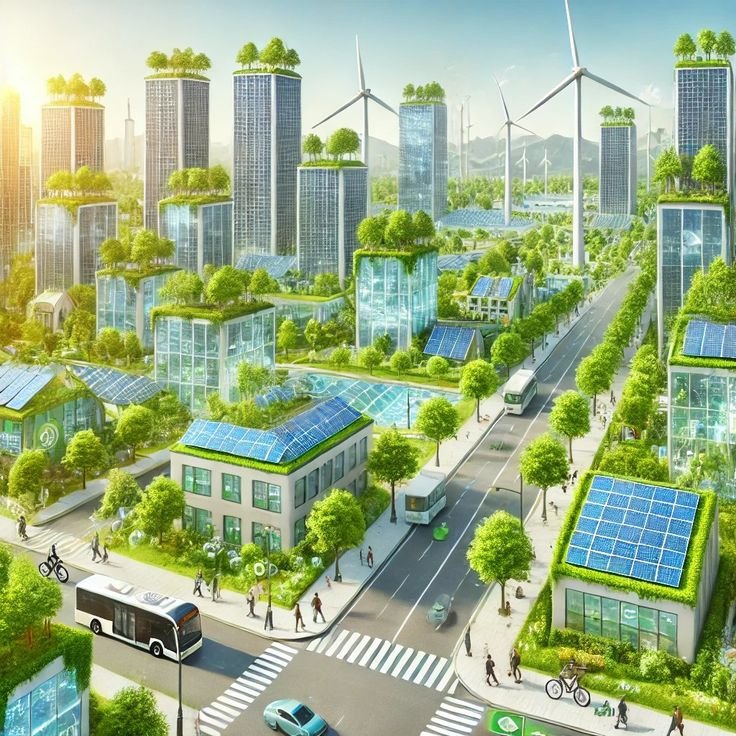
Embracing an eco-friendly lifestyle starts right at home. Simple changes in our daily habits can significantly reduce our energy consumption and carbon footprint. One of the easiest ways to save energy is by switching to LED light bulbs. LED bulbs are highly efficient, long-lasting, and consume up to 90% less energy than traditional incandescent bulbs.
Another effective tip is to unplug appliances and electronics when not in use. Even when turned off, many devices continue to draw power, leading to unnecessary energy consumption and higher utility bills. Consider using power strips to easily switch off multiple devices at once.
Investing in energy-efficient appliances is also a smart move. Look for appliances with the Energy Star certification, which indicates they meet strict energy efficiency guidelines. These appliances may have a higher upfront cost but will save you money in the long run through reduced energy consumption.
Additionally, adjust your thermostat settings to minimize heating and cooling needs. During colder months, lower the temperature a few degrees and dress warmly. In warmer weather, raise the thermostat and use fans to circulate cool air. These simple adjustments can lead to substantial energy savings.
Sustainable Eating Habits

Adopting sustainable eating habits is a crucial step towards an eco-friendly lifestyle. One of the most impactful changes you can make is transitioning to a plant-based diet. By reducing your consumption of animal products, you can significantly lower your carbon footprint and conserve precious resources like water and land.
Another essential aspect of sustainable eating is minimizing food waste. Shockingly, a staggering amount of edible food ends up in landfills, contributing to greenhouse gas emissions and wasting valuable resources. To combat this issue, plan your meals in advance, learn proper food storage techniques, and get creative with leftovers or overripe produce.
Additionally, supporting local farmers and producers is a great way to embrace sustainability. By buying locally grown and seasonal produce, you not only reduce the carbon footprint associated with transportation but also support your community’s economy and promote sustainable agriculture practices.
Zero Waste Living: A Simple Path to Sustainability

The concept of zero waste living is a powerful approach to reducing our environmental impact. It encourages us to rethink our consumption habits and make conscious choices to minimize waste generation. By embracing this lifestyle, we can significantly reduce the amount of waste that ends up in landfills, oceans, and natural habitats, ultimately preserving our planet’s precious resources.
One of the simplest yet most effective ways to embrace zero waste living is by eliminating single-use plastics from our daily routines. These disposable items, such as plastic bags, straws, and water bottles, are designed for one-time use and often end up polluting our environment for centuries. Instead, opt for reusable alternatives like cloth bags, metal straws, and refillable water bottles. Not only will you be reducing plastic waste, but you’ll also save money in the long run.
Composting is another powerful tool in the zero waste arsenal. By separating organic waste from your regular trash, you can transform food scraps and yard waste into nutrient-rich soil amendments. This process not only diverts waste from landfills but also provides valuable nutrients for your garden or houseplants, fostering a closed-loop system.
Embracing a zero waste lifestyle goes beyond just reducing waste; it’s a mindset shift that encourages us to be more mindful of our consumption patterns. Before making a purchase, ask yourself if you truly need the item and consider its lifespan and potential for reuse or recycling. By making conscious choices and prioritizing quality over quantity, we can significantly reduce the waste we generate and contribute to a more sustainable future.
Water Conservation: Simple Tips for Saving Every Drop
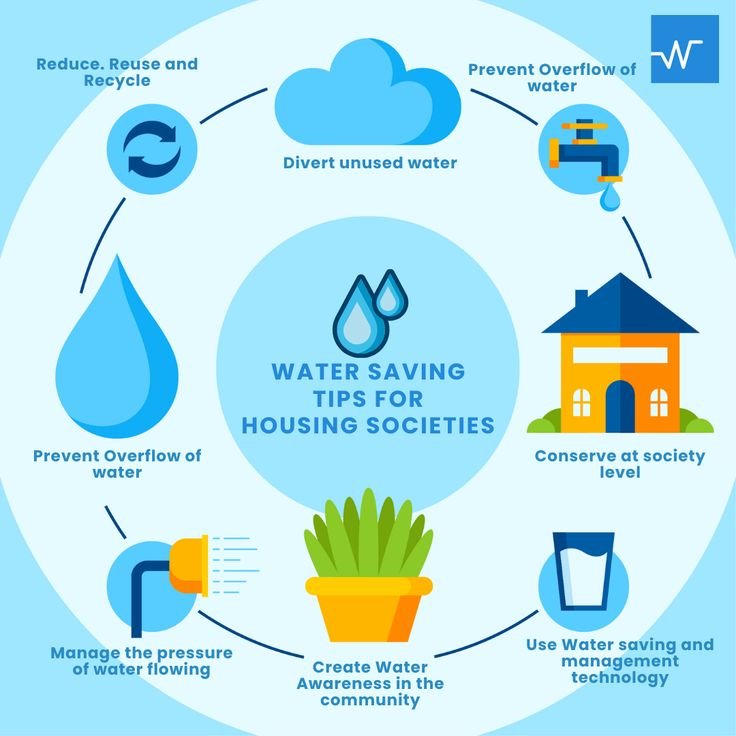
Water is a precious and finite resource, and conserving it is crucial for both environmental and economic reasons. By adopting a few simple habits, you can significantly reduce your water consumption at home and contribute to a more sustainable future. Here are some practical tips to help you save water:
- Take Shorter Showers: One of the easiest ways to save water is by taking shorter showers. Aim for showers that last no more than 5-7 minutes. Consider installing a low-flow showerhead, which can reduce water consumption by up to 50%.
- Fix Leaks Promptly: Even a small drip from a faucet or showerhead can waste gallons of water over time. Regularly check for leaks and have them repaired promptly by a professional plumber or handyman.
- Turn Off the Tap: Develop the habit of turning off the tap while brushing your teeth, shaving, or washing your face. This simple action can save a significant amount of water over time.
- Reuse Water: Instead of letting the water run while waiting for it to heat up, collect the cold water in a bucket or container and use it for watering plants or cleaning purposes.
- Install Water-Efficient Appliances: When it’s time to replace your washing machine, dishwasher, or toilet, choose models that are Energy Star certified and water-efficient. These appliances can significantly reduce your water consumption.
- Collect Rainwater: Consider installing a rainwater harvesting system to collect and store rainwater for outdoor use, such as watering your garden or washing your car.
- Mulch Your Garden: Applying a layer of mulch around your plants and garden beds can help retain moisture in the soil, reducing the need for frequent watering.
By implementing these simple water conservation tips, you can make a meaningful difference in preserving this precious resource and promoting a more sustainable future for our planet.
Eco-Friendly Transportation

Embracing eco-friendly transportation is a crucial step towards sustainable living. By opting for greener modes of travel, we can significantly reduce our carbon footprint and contribute to a healthier planet. One of the most effective ways to achieve this is by using public transportation. Buses, trains, and subways not only reduce traffic congestion but also emit fewer greenhouse gases per passenger compared to personal vehicles.
Another excellent option is biking. Cycling is an environmentally friendly, cost-effective, and healthy mode of transportation. It eliminates emissions entirely and promotes physical activity, contributing to a healthier lifestyle. For shorter distances, biking can be a convenient and enjoyable alternative to driving.
Carpooling is another eco-friendly solution that can make a substantial impact. By sharing rides with colleagues, friends, or neighbors, we can reduce the number of vehicles on the road, thereby decreasing emissions and traffic congestion. Carpooling also fosters a sense of community and can save money on fuel and maintenance costs.
Embracing eco-friendly transportation not only benefits the environment but also offers numerous personal advantages. By choosing public transport, biking, or carpooling, you can reduce your carbon footprint, save money, and even improve your physical and mental well-being through increased physical activity and reduced stress from traffic jams.
Eco-Friendly Products for Sustainable Living
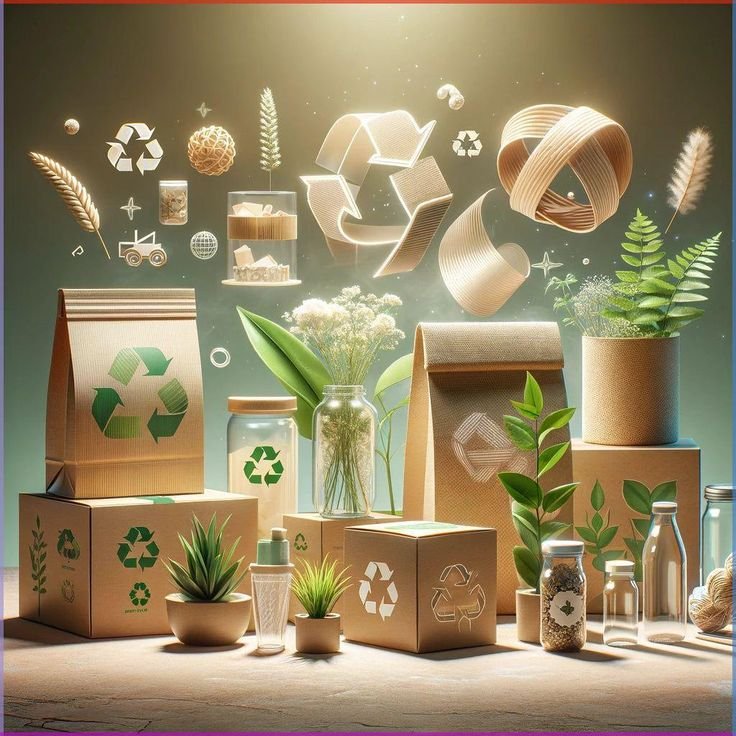
In our quest for a greener tomorrow, embracing eco-friendly products is a simple yet powerful step towards sustainable living. By making conscious choices in the products we use, we can significantly reduce our environmental impact and contribute to a healthier planet.
One of the most common sources of waste is single-use plastics. Switching to reusable containers, such as glass jars, stainless steel bottles, and silicone bags, can eliminate the need for disposable plastic containers. These durable alternatives not only reduce waste but also save money in the long run.
When it comes to cleaning supplies, traditional chemical-based products can be harmful to both our health and the environment. Biodegradable cleaning supplies made from natural ingredients like vinegar, baking soda, and essential oils are effective and eco-friendly alternatives. These products break down naturally without releasing toxic chemicals into the environment.
Sustainable fashion is another crucial aspect of an eco-friendly lifestyle. Choosing clothing made from organic, recycled, or sustainable materials like bamboo, hemp, and linen can significantly reduce the environmental impact of the fashion industry. Additionally, supporting brands that prioritize fair trade practices and ethical manufacturing processes is a step towards creating a more sustainable and equitable supply chain.
By incorporating eco-friendly products into our daily lives, we can make a significant difference in reducing our carbon footprint and promoting a healthier planet. Remember, every small step towards sustainability counts, and by collectively embracing these eco-friendly alternatives, we can create a greener tomorrow for ourselves and future generations.
Choosing Sustainable Brands
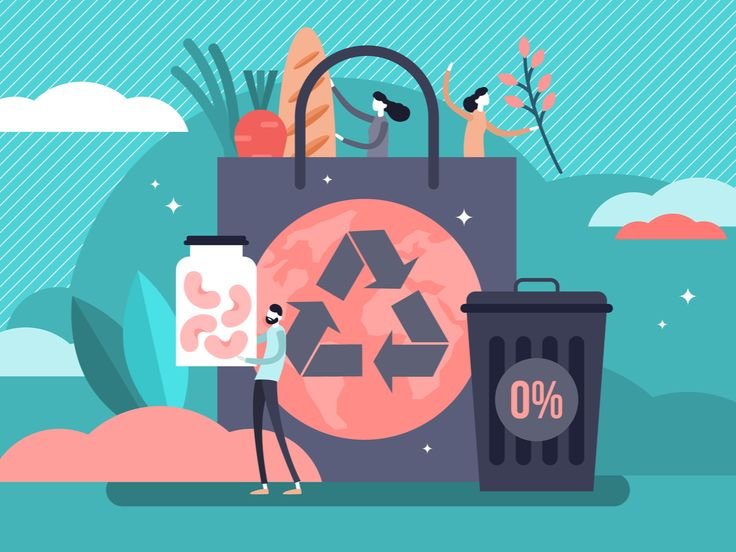
When it comes to embracing an eco-friendly lifestyle, the products we choose to buy and the brands we support play a crucial role. By opting for brands that prioritize sustainability, we can actively contribute to a greener future. These brands go beyond just offering eco-friendly products; they adopt ethical practices and principles that align with environmental conservation and social responsibility.
Supporting sustainable brands means choosing companies that are committed to fair trade practices. Fair trade ensures that workers in the supply chain are treated fairly, paid living wages, and provided with safe working conditions. These brands prioritize ethical sourcing of materials and promote sustainable farming methods, which help to protect the environment and support local communities.
Organic products are another hallmark of sustainable brands. By choosing organic products, we are supporting farming practices that avoid the use of harmful pesticides and synthetic fertilizers. These practices not only protect the environment but also promote healthier soil, water, and air quality. Organic farming methods also prioritize biodiversity and the preservation of natural ecosystems.
Cruelty-free brands are also at the forefront of sustainable living. These companies do not engage in animal testing or use animal-derived ingredients in their products. By supporting cruelty-free brands, we are promoting ethical treatment of animals and reducing the environmental impact associated with animal-based products.
When we support sustainable brands, we are voting with our dollars for a better future. These brands are actively working to reduce their carbon footprint, minimize waste, and promote responsible consumption. By choosing to buy from these companies, we are sending a powerful message that we value environmental stewardship and ethical practices.
Moreover, sustainable brands often prioritize transparency and accountability. They provide detailed information about their supply chain, manufacturing processes, and environmental initiatives. This transparency allows consumers to make informed decisions and ensures that these brands are held accountable for their claims and practices.
In summary, choosing sustainable brands is a powerful way to embrace an eco-friendly lifestyle. By supporting companies that prioritize fair trade, organic practices, cruelty-free policies, and environmental responsibility, we can collectively drive positive change and create a greener, more sustainable future for our planet.
DIY and Upcycling: Breathe New Life into Old Items

Embracing a sustainable lifestyle doesn’t have to be expensive or complicated. One of the most creative and rewarding ways to reduce waste is through DIY projects and upcycling. Instead of discarding items you no longer need, consider giving them a new purpose and extending their lifespan.
DIY projects offer a fun and eco-friendly way to create unique and personalized items while reducing your environmental footprint. From turning old t-shirts into reusable shopping bags to crafting planters from discarded tin cans, the possibilities are endless. Not only do these projects save money, but they also encourage creativity and a sense of accomplishment.
Upcycling takes the concept of repurposing to a whole new level. It involves transforming items that would otherwise end up in landfills into functional and stylish pieces. For example, an old wooden pallet can be transformed into a beautiful vertical garden, a vintage suitcase can become a quirky side table, and empty glass bottles can be turned into stunning vases or candle holders.
One of the best things about DIY and upcycling is that they allow you to express your individuality while contributing to a greener tomorrow. Not only are you reducing waste, but you’re also creating unique and meaningful items that reflect your personal style and values.
So, the next time you’re tempted to throw something away, take a moment to consider how you can breathe new life into it. Whether it’s a simple craft project or a more ambitious upcycling endeavor, you’ll be amazed at the creative and eco-friendly possibilities that await.
Start Small and Stay Consistent

The transition to a more sustainable lifestyle can seem daunting, but remember, every small step counts. Begin by introducing one eco-friendly habit at a time, allowing yourself to adjust gradually. Perhaps start by carrying a reusable water bottle or saying no to plastic straws. Once you’ve mastered one change, move on to the next. Consistency is key to forming new habits and making a lasting impact.
It’s also helpful to surround yourself with like-minded individuals who can inspire and motivate you. Consider joining a local sustainability group or community garden. Not only will you learn from others, but you’ll also find a support system to hold you accountable. Additionally, support businesses that prioritize eco-friendly practices, as this encourages more companies to adopt sustainable models.
Remember, sustainable living is a journey, and every person’s path may look different. Celebrate your progress, no matter how small, and don’t get discouraged if you slip up occasionally. Stay focused on the positive impact you’re making, and continue taking steps toward a greener tomorrow.
Conclusion: Embrace Sustainable Living for a Healthier Planet

Adopting an eco-friendly lifestyle is a powerful way to make a positive impact on our planet. By embracing sustainable habits, we can reduce our carbon footprint, conserve natural resources, and protect the environment for future generations.
Throughout this article, we’ve explored the numerous benefits of living sustainably, from improving personal health and saving money to contributing to global efforts against climate change. Even small changes, such as reducing plastic waste, conserving water, and supporting eco-friendly brands, can collectively make a significant difference.
It’s important to remember that sustainability is a journey, and every step counts. Start by implementing one or two eco-friendly habits that resonate with you, and gradually incorporate more sustainable practices into your daily life. Consistency is key, and with time, these choices will become second nature.
Join the growing community of individuals committed to creating a greener tomorrow. Share your sustainable living journey with others, participate in local environmental initiatives, and support businesses that prioritize sustainability. Together, we can inspire others and collectively work towards a healthier, more sustainable future for our planet.
Take the first step today by implementing one eco-friendly change in your life. Share your journey with us in the comments below and encourage your friends and family to embrace sustainable living. Together, we can create a brighter, greener tomorrow for ourselves and generations to come.

Our planet is begging from us; its once lush woodlands are vanishing, its seas are drowning in plastic, and its atmosphere is tainted with the murk of pollution. The splendor we once took for granted is swiftly disappearing, and if we don’t act now, we might lose it forever. The moment to take action is now. We cannot afford to remain passive while the cherished Earth is on the verge of irreversible harm. The Earth is not merely our residence—it shelters every living being, and its decline will influence future generations. We must unite to protect it before it’s too late. Let’s rise and advocate for the planet, its future, and all the lives it nurtures.
At Eco Beginner, we are committed to making this battle a bit easier and significantly more effective. We provide a diverse selection of eco-conscious, print-on-demand products, ranging from cozy cushions and trendy t-shirts to delightful mugs, wall art, lockets, puzzles, and much more. Every product we offer is crafted to facilitate a more sustainable lifestyle while still infusing joy and beauty into your everyday routine. When you choose to buy from us, you are making a deliberate decision to support a greener tomorrow.
Not only will you be acquiring distinctive, high-quality items, but you will also support a brand that genuinely cares about the environment. All of our products are designed with sustainability in focus, ensuring that every purchase you make aids in preserving the planet for future generations.
Every step you take with us brings you closer to a brighter, more sustainable future. In addition to our eco-friendly offerings, we are thrilled to introduce our new book on sustainable living. This book is an all-encompassing guide, brimming with practical insights, heartfelt counsel, and motivating tales to help you adopt a more eco-friendly lifestyle. By supporting us, you’re not just acquiring a product—you’re also endorsing a movement aimed at change.
Moreover, 50% of our profits are donated to charitable organizations, aiding those in distress and promoting environmental initiatives that can help heal the planet. Everything we produce is eco-friendly, and each purchase you make contributes to a lasting change in the world around us.
When you opt for Eco Beginner, you’re selecting more than just a product. You’re becoming part of a community that’s dedicated to rescuing the Earth, one mindful decision at a time. Together, we can create an impact—let’s unite and embody the change we urgently need. Thank you for joining us on this journey.
And even if you can’t buy anything today, you can still assist us in spreading the word! Just click on the ads on our site to support our cause. Every small action adds up, and your participation helps us reach a wider audience and create an even greater impact. Thank you for your on going support!



